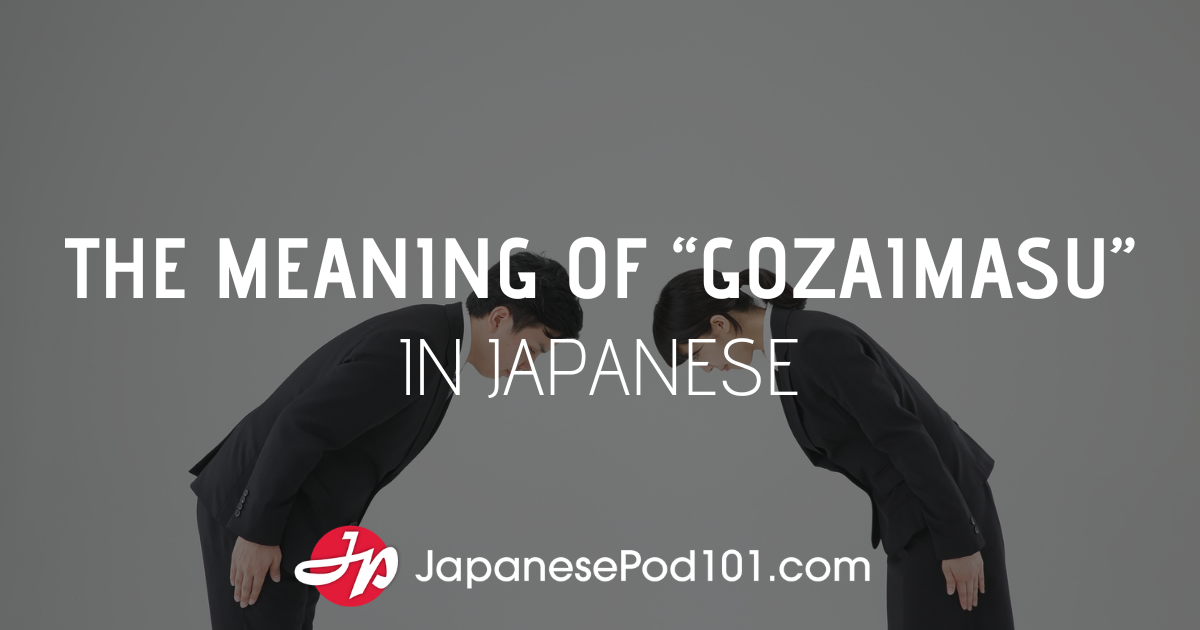Archive for the 'Japanese Words' Category
November 27, 2020
The 10 Most Useful Japanese Questions and Answers
Have you ever tried to use a newly learned Japanese phrase, only to panic when you couldn’t understand your interlocutor’s reply?
Whether you’re making new Japanese friends or traveling in Japan, knowing how to give questions and answers in Japanese will allow for smoother communication. Learning how to ask Japanese questions will also help you better understand Japanese, and improve your speaking and listening skills. The keys to mastering these skills early on are to speak a lot and practice!
In this article, we’ll introduce the ten most useful Japanese question & answer patterns. Even if you’re just getting started, you can start having basic conversations with these phrases! Learn how to speak Japanese here at... Show more
October 30, 2020
The 10 Most Useful Japanese Sentence Patterns
Learning a new language is fun, but it requires a lot of effort—studying the complicated grammar rules and memorizing thousands of words. But we have a tip for you! The fastest and easiest way to learn Japanese is to just focus on the most useful and common Japanese sentence patterns and start speaking them!
The most frequently used Japanese sentence patterns are useful for survival communication and day-to-day interactions. When you know the essential sentence patterns in Japanese, you can arrange and create more sentences to express yourself and have conversations.
In this article, we’ll introduce the ten most useful Japanese sentence patterns, which cover the most basic statements and questions. Boost your Japanese conversation... Show more
October 19, 2020
Top 100 Common Japanese Adverbs
It’s impossible to explain something in detail without using adverbs. These are words which can efficiently express time, frequency, place, manner, degree, and more. When you want to boost your language skills, learning adverbs is important and inevitable.
Just like those in other languages, there are a variety of Japanese adverbs and they’re frequently used in sentences. Japanese adverbs are quite similar to English adverbs, though there are some differences to keep in mind. For example, Japanese adverbs are classified in categories according to their characteristics, and they’re placed in different positions in a sentence depending on how they’re used. But don't worry! The rules are quite simple, and you’ll get the hang of them over... Show more
October 5, 2020
Ultimate Japanese Verb Conjugation Guide
How many verbs do you think you use everyday? Verbs are the second-most frequently used part of speech in Japanese (after nouns), making it crucial to know and understand Japanese verb conjugation.
Compared to English, Japanese verb conjugation has distinct rules which might be difficult to understand at first. However, the good news is that Japanese verbs do not conjugate according to the speaker. Instead, the Japanese verb conjugation rules are the same for every grammatical person, or 人称 (ninshō), and any number of subjects (singular or plural). Therefore, you won’t be easily confused on how to conjugate Japanese verbs in this respect. In addition, there are very few irregular verb conjugations!
In this article, we’ll introduce... Show more
August 25, 2020
The 100+ Most Common Japanese Verbs
How many Japanese verbs do you know? When you know the 100 most common Japanese verbs and understand basic Japanese verb conjugation, you can express and understand Japanese much better!
Verbs are one of the most important parts of speech, and it’s said that verbs are the second most frequently used words (26%, next to nouns at 42%) among all other categories of words in daily Japanese conversations.
It’s always a bit tiring to learn grammatical rules, such as the conjugation patterns of verbs. However, it’s easier than you think! Once you have the rules down and become used to using them, all you have to do is apply those rules to new Japanese verbs you learn.
Japanese verb conjugation has unique rules from those in English. But... Show more
August 24, 2020
Your Ultimate Guide to Japanese Pronouns
Pronouns are used to substitute nouns, such as people or things, in a sentence. Using pronouns allows you to avoid repetitive usage of a particular word in a sentence, which would sound awkward. Japanese pronouns are very different from those in English because Japanese pronouns can be omitted from a sentence when they’re implied through the context.
Unlike in English, there are many different variations of Japanese personal pronouns that translate as "I/me" and "you," although only a few are commonly used. This expression of Japanese pronouns comes from Japanese culture, which puts importance on respect, seniority, and social order.
Each Japanese pronoun variation denotes the different characteristics of the speaker. These include... Show more
August 7, 2020
Japanese Sentence Structure & Word Order
When learning a new language, the grammatical part is inevitable. Even if you have a large vocabulary and can communicate well enough with native speakers of that language (which is a great way to practice at first!), you need to know the correct word order and sentence structure to continue improving.
Japanese grammar is totally different from English grammar. However, once you get used to the Japanese sentence structure, it will be much easier for you to make sentences. This is because the Japanese language word order is more flexible than that of English.In this article, we’ll introduce the basics of Japanese word order, which will help you better understand Japanese sentence structure as a whole. Brush up on your Japanese here... Show more
July 31, 2020
How to Tell Time in Japanese
Telling time is one of the most essential aspects of everyday life. Learning how to tell time in Japanese will help you improve your basic Japanese language skills. Whether you’re checking the time for transportation or making an appointment, knowing how to say time in Japanese will help you when visiting Japan.
Telling time in Japanese is quite simple and easy to understand. Unlike in English, when expressing time in Japanese, the words which indicate the hour and minute are always added next to the numbers (e.g. 3:12 or three twelve = 時 (3ji) 分 (12fun). Thus, even without context or a sentence, you’ll easily understand that these phrases indicate time in Japanese.
In this article, we introduce the basic vocabulary and phrases for... Show more
July 17, 2020
Giving and Asking for Directions: “Right” in Japanese & More
Knowing how to ask for directions in Japanese is very helpful when it comes to getting around in Japan.
In particular, finding the right address can be a bit confusing, because smaller streets in Japan aren’t named and addresses are expressed with the name of a small area and numbers.
Along with knowing how to ask directions in Japanese, understanding the directions you were told is even more important. This ensures that you can reach the destination with the information given. (You don’t want to mistake "right" in Japanese for left!)
But don’t worry! Japanese people are kind in general, and they’ll stop to listen and help you when you ask them for directions in Japanese.
Here’s some useful vocabulary and phrases for giving and... Show more
June 29, 2020
Guide to the Top 100+ Japanese Nouns
Expanding one’s vocabulary is one of the most essential elements in improving one’s language skills. Learning Japanese nouns will help you boost your knowledge of the Japanese language because nouns occupy the majority of the language’s words. Knowing the top 100 Japanese nouns is the first step to enhance your Japanese vocabulary.
Japanese nouns are used to name a person, place, thing, or idea. Contrary to English, Japanese nouns don’t accompany any articles, such as "a" and "the." In addition, there are no certain rules for indicating, in a precise sense, whether a noun is singular or plural. For example, there’s the word 達(たち) , which indicates a plural form of people or creatures when it’s put next to a noun (e.g. 動物 + 達 =... Show more









